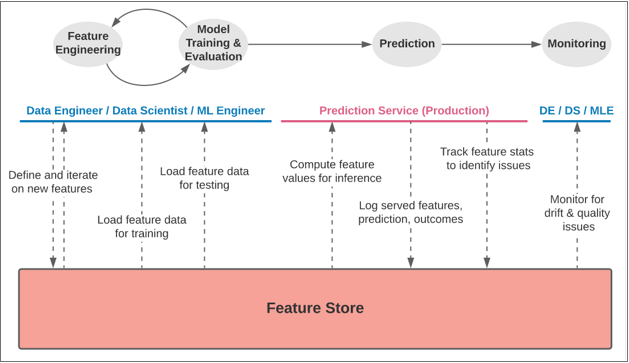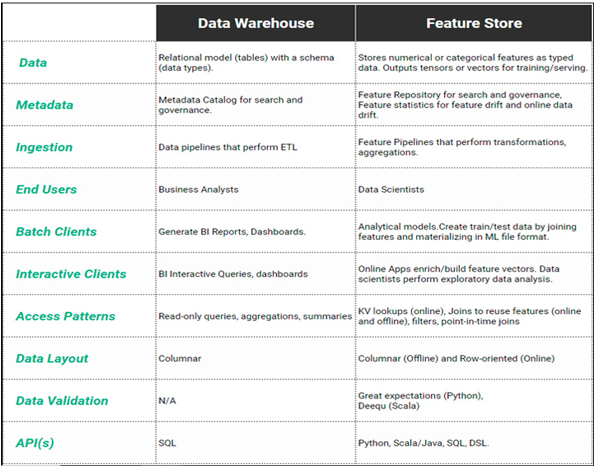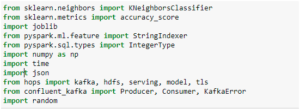Feature store is a fundamental component of the ML stack and of any robust data infrastructure because it enables efficient feature engineering and management. It also allows for simple re-use of features, feature standardization across the company, and feature consistency between offline and online models. A centralized, scalable feature store allows organizations to innovate faster and drive ML processes at scale..
From a business perspective, feature stores offer two major benefits:
- Better ROI from feature engineering through reduction of cost per model, which facilitates collaboration, sharing, and re-using of features
- Faster time to market for new models, driven by increased productivity of ML Engineers. This enables organizations to decouple storage implementation and features serving API from ML engineers, freeing them to work on models, not on latency problems, for more efficient online serving.
Some use cases do not require a centralized, scalable feature store. Feature stores work for projects where models need a stateful, ever-changing representation of the system. Examples of such use cases include demand forecasting, personalization and recommendation engines, dynamic pricing optimization, supply chain optimization, logistics and transportation optimization, fraud detection, and predictive maintenance.










